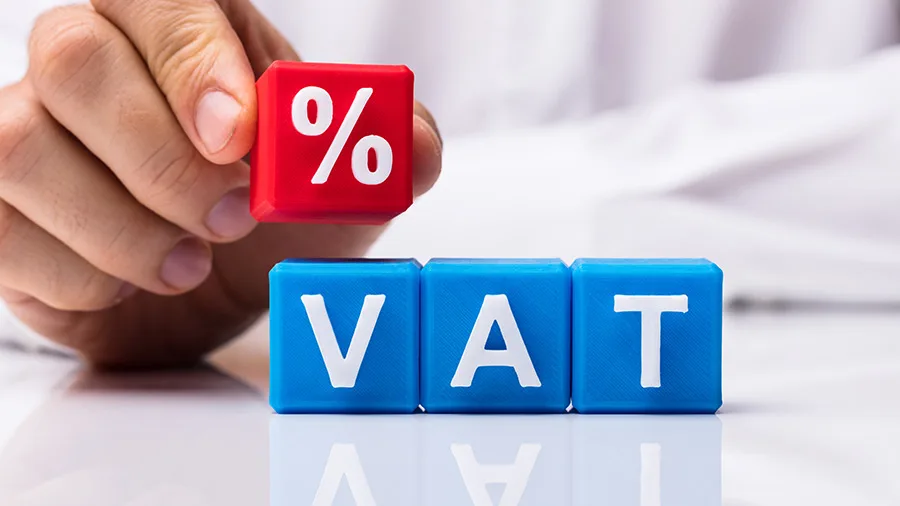
Government Projects 0.3% Inflation Increase With 12% VAT in 2025
Businessicy – The Coordinating Ministry for Economic Affairs has projected a 0.3% rise in inflation for 2025 following the implementation of a 12% Value-Added Tax (VAT) starting January 1. The new tax rate is part of the 2022 Tax Law, which initially increased VAT from 10% to 11% in April 2022, with the second phase scheduled for 2025.
Ferry Irawan, Deputy for State-Owned Enterprises Management at the ministry, assured that the impact on household consumption would be less severe than the previous increase. “The new rate won’t apply to all goods and services, minimizing its effect on household spending,” Irawan stated during a press briefing in Jakarta.
He highlighted that inflation remains under control, with November’s year-on-year rate at 1.55%, well below 2%. The anticipated 0.3% rise in inflation reflects the government’s efforts to manage price stability amid the tax hike.
The Central Statistics Agency (BPS) reported that the 2022 VAT increase, which raised the tax from 10% to 11%, significantly influenced inflation. Inflation rose from 2.64% in March to 3.47% in April, eventually peaking at 5.51% by year-end. As the government plans to implement a further VAT hike to 12% in 2025, concerns over its economic impact have resurfaced.
For 2025, the government has set an inflation target of around 2.5%. To mitigate inflationary pressure, Deputy for State-Owned Enterprises Management Ferry Irawan announced measures including strengthening food reserves, stabilizing prices, and fostering inter-regional cooperation. “These initiatives aim to minimize the VAT hike’s impact on household spending,” he stated.
Despite these reassurances, the Center of Economic and Law Studies (Celios) raised concerns about the hike’s potential burden on lower- and middle-income households. According to Media Wahyudi Askar, Public Policy Director at Celios, the VAT increase could add Rp 101,880 ($6) per month to expenses for low-income families and Rp 354,293 ($22) for middle-class households.
“Such increases risk exacerbating inflation and economic vulnerability, particularly for households already under financial strain,” Askar warned.
“Apple, Samsung Users Dissatisfied with Smartphone AI Features”
As Indonesia prepares for its 2025 VAT increase to 12%, experts argue the move is more fitting for wealthier nations like Norway, Denmark, and Germany, where strong purchasing power and low inflation offset economic strain. Media Wahyudi Askar, Public Policy Director at Celios, criticized the hike, highlighting that Indonesia’s VAT rate is already the highest in ASEAN. “The middle class is already under pressure. The government should align its VAT policies with regional standards,” Media emphasized.
To counterbalance the economic burden, the government has announced a Rp 827 trillion ($51.65 billion) stimulus package targeting households, workers, small businesses, and labor-intensive industries. Measures include food assistance and discounted electricity bills for households, along with VAT exemptions on essential goods like flour, industrial sugar, and subsidized cooking oil. Workers will gain access to job loss protection schemes to cushion against potential layoffs.
Small businesses will continue to benefit from the 0.5% final income tax rate extension, while labor-intensive industries will receive wage tax incentives, financing support, and subsidies for work accident insurance. Additionally, the government plans to promote cleaner transportation by introducing VAT incentives for electric and hybrid vehicles.
In the housing sector, VAT exemptions will apply to homes priced between Rp 2-5 billion, with VAT charged only on the portion exceeding Rp 2 billion. These initiatives aim to reduce economic strain and support growth amid rising fiscal challenges.
While the government remains optimistic about these measures, experts caution that aligning Indonesia’s VAT policies with regional practices and addressing structural economic vulnerabilities will be crucial for long-term stability.
“The Complete Information From Wikipedia About VAT”